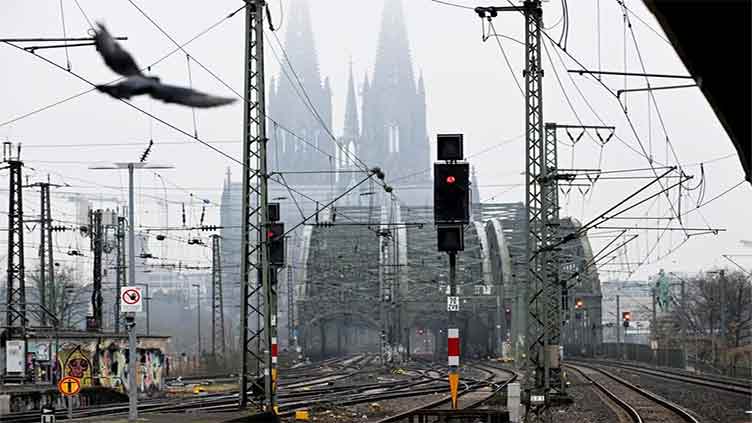German union calls longest train strike in Deutsche Bahn's history

World
German union calls longest train strike in Deutsche Bahn's history
(Reuters) - German train drivers are set to stage a record six-day strike from Wednesday after their union rejected state-owned rail operator Deutsche Bahn's (DBN.UL) latest wage offer.
The GDL union announced on Monday that a fourth round of strikes in the ongoing wage dispute would begin at 2 a.m. local time (0100 GMT) on Wednesday until 6 pm (1700 GMT) on the following Monday, which would be the longest strike in Deutsche Bahn's history. Cargo train drivers were called to begin their strike a day earlier, on Tuesday at 6 pm.
The longest strike at Deutsche Bahn to date lasted five days in 2015.
The latest strike could quickly add up to a billion euros in damage, taking into consideration that other transport routes have also been disrupted by the situation in the Red Sea, Michael Groemling, from the IW Cologne economic institute, said.
"Something is brewing," said Groemling. The German economy is already in recession. "This is now threatening to worsen," he said.
Commerzbank chief economist Joerg Kraemer said the strike could cost the transport sector 30 million euros ($32.66 million) a day but significantly more damage would be done if factories have to stop production due to supply problems.
In addition, the strike was adding to the already tarnished image of Germany as a business location, he said.
Germany's GDL train drivers union strike demanding wage increases and shorter working week, in Cologne
A bird flies near empty railway tracks at Cologne Deutz train station during a strike by Germany's GDL train drivers' union demanding wage increases and a shorter working week, in Cologne, Germany, January 12, 2024. REUTERS/Jana Rodenbusch Acquire Licensing Rights, opens new tab
Deutsche Bahn had submitted a new wage offer to the GDL on Friday which also responded to the union's core demand of a reduction in working hours with full wage compensation.
However, the GDL rejected it. "With the third and supposedly improved offer, Deutsche Bahn AG has once again shown that it is pursuing its previous course of refusal and confrontation undeterred - with no trace of any intention to reach an agreement," GDL boss Claus Weselsky said in a statement.
A Deutsche Bahn spokesperson criticized the GDL for exacerbating the conflict instead of seeking compromise.
"Anyone who does not even come to the negotiating table with a new offer of up to 13% (wage increase) and the possibility of a 37-hour week with the same salary is acting absolutely irresponsibly," said the spokesperson.
Deutsche Bahn and the GDL have been in dispute over a collective wage agreement since the beginning of November, with the union seeking a reduced working week for its shift workers, from 38 to 35 hours, on current wages.


